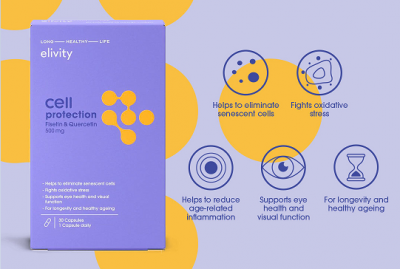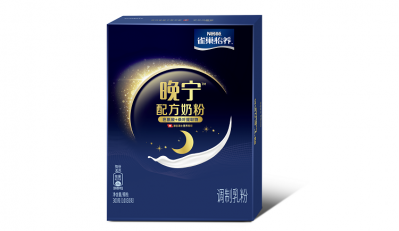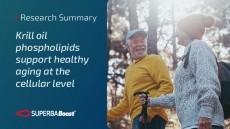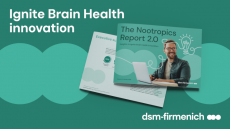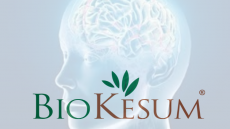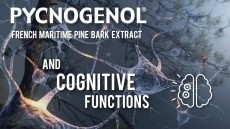Ginseng, brahmi, coffee fruit extract could improve mood, working memory – USANA-funded trial
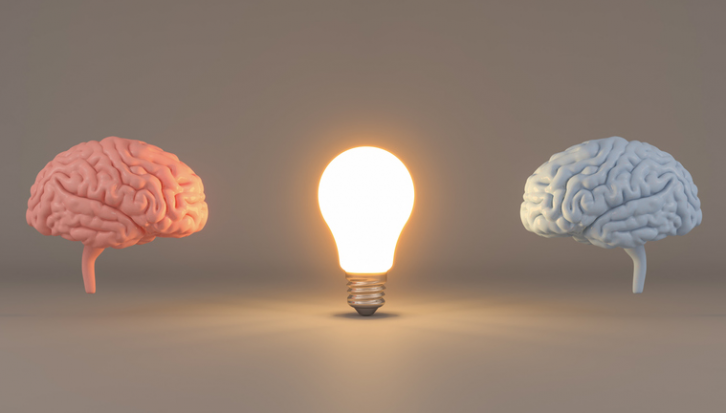
Findings of the randomised, double-blind, placebo-controlled study were published in Nutritional Neuroscience.
The trial was conducted by researchers from NeuroHealth Lab within Appleton Institute – part of Australia’s Central Queensland University.
Sixty healthy adults aged 35 to 65 were randomised to take two tablets the supplement commercially available as CopaPrime+™ or the placebo.
CopaPrime+™ is a product from USANA.
A polyphenolic rich formulation, each tablet consists of 150mg of Bacopa monnieri or brahmi, 50mg of American ginseng Panax quinquefolius, and 50mg of whole coffee fruit extract.
The participants’ cognition, mood, and brain activity were measured at baseline, at the end of the study, and 14 days after the study had ended.
For example, their haemodynamic response, or blood circulation, in the brain’s prefrontal cortex was measured using functional near-infrared spectroscopy (fNIRS).
Serum brain-derived neurotrophic factor (BDNF), a key molecule involved in plastic changes related to learning and memory, was also measured.
In addition, the participants had to answer questionnaires regarding their diet and their self-reported changes in mood using The Positive and Negative Affect Schedule (PANAS).
One of the key findings was that positive affect, defined as “the extent to which a person feels enthusiastic, active, and alert”, has improved significantly in the intervention group.
By the end of the trial, their PANAS positive affect scores had increased by 2.46 from the baseline score of 25.46.
The scores of the placebo group, however, had dropped 0.53 from the baseline score of 28.53.
“The change scores for mood and affect measures show a significant improvement in positive affect for those in the active condition (referring to the intervention group) compared to placebo condition post supplementation (p = .007, d = 0.8),” said the researchers.
Prefrontal cortex activation and working memory
Another key finding was that the intervention group had showed a greater prefrontal cortex (PFC) activation, as seen from their performance of the 2-back tasks.
The greater PFC activation in the intervention group was measured by haemodynamic response or blood flow in that area.
The PFC also regulates one’s thoughts, actions and emotions through extensive connections with other brain regions. However, it is also said to be the brain region that is highly sensitive to the detrimental effects of stress exposure.
On the other hand, the 2-back tasks assess working memory – the cognitive system involved in the temporary storage and processing of a limited amount of information.
In this study, researchers reported an increase in oxyhaemoglobin (HbO) change score in the PFC among the intervention group when they were performing the 2-back task.
For example, post-supplemention, HbO scores in the PFC for the intervention group had improved by 0.835, but that of the placebo group had decreased by -0.197.
“For the brain, those in the active condition (referring to intervention group) showed greater PFC activation on performance of the 2-back tasks post supplementation compared to placebo (p < .05, d = 0.6),” the researchers said.
However, they pointed out that aside from 2-back tasks, there were no other changes in overall PFC activation when the participants were performing other tasks.
Non-significant or no improvements
The intervention group also showed an improvement in delayed recall post-supplementation, but the improvement was not statistically significant.
Delayed recall is affected by the functions of, and connections among multiple brain regions.
Delayed recall of words in a verbal learning test, for instance, has been used as a sensitive measure for the diagnosis of amnestic mild cognitive impairment (aMCI) and early Alzheimer’s disease (AD).
In addition, there were no significant differences in serum BDNF levels between the intervention and placebo groups.
The researchers said this could be due to various reasons, such as an inadequate dose.
“Whilst there were no detectable changes in serum BDNF levels in this study, this is likely due to a range of environmental constraints, including and not limited to lockdowns for COVID and exposure to the virus, inadequate overall dose in this age group and overall health status as baseline.”
Still, they concluded that the supplement could produce synergistic effects, for three reasons.
“First, 30-min delayed recall tasks are sensitive and predictive of longer-term cognitive function and suggest a potential mechanism of effect not typically observed following four weeks compared to eight or 12-week supplementation periods.
“Second, changes in delayed recall are typically related to changes in the activation of the medial temporal lobe in healthy older adults (aged 52–92), a region highly associated with memory performance, which was not measured in this study and suggests an activation in a region of the brain not typically explored in supplementation studies.
“Third, the daily dose of each ingredient was consumed at lower amounts than previous longer-terms studies (i.e. daily dose of Bacopa in the current study of 100 mg vs 300mg–450 mg daily dose in studies of 12 weeks duration.”
Source: Nutritional Neuroscience
Neurocognitive effects a combined polyphenolic-rich herbal extract in healthy middle-aged adults – a randomised, double-blind, placebo-controlled study.
https://doi.org/10.1080/1028415X.2024.2325227
Authors: Best, T., Miller, J., & Teo, W. P.

